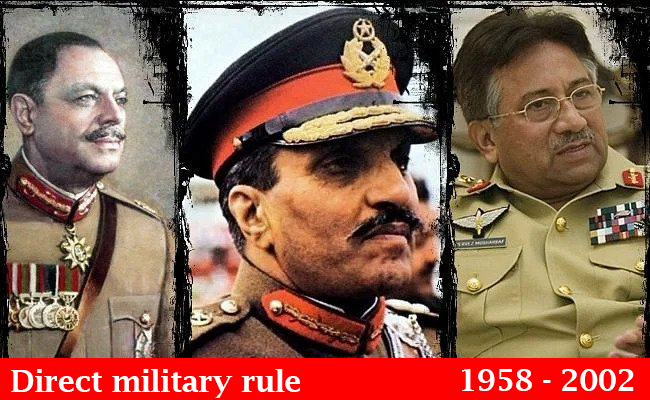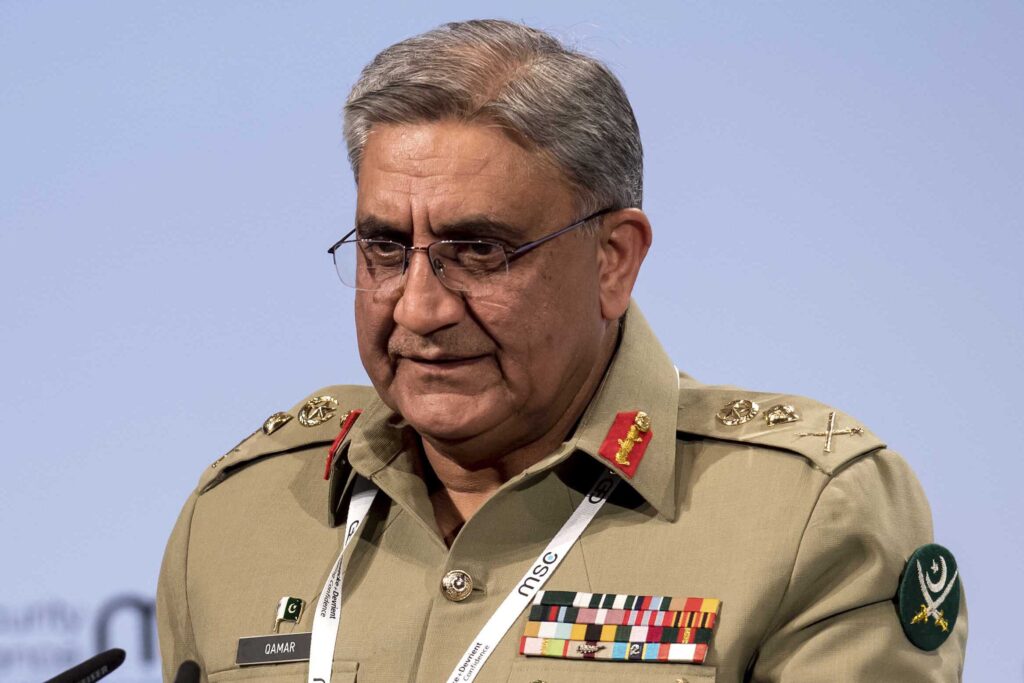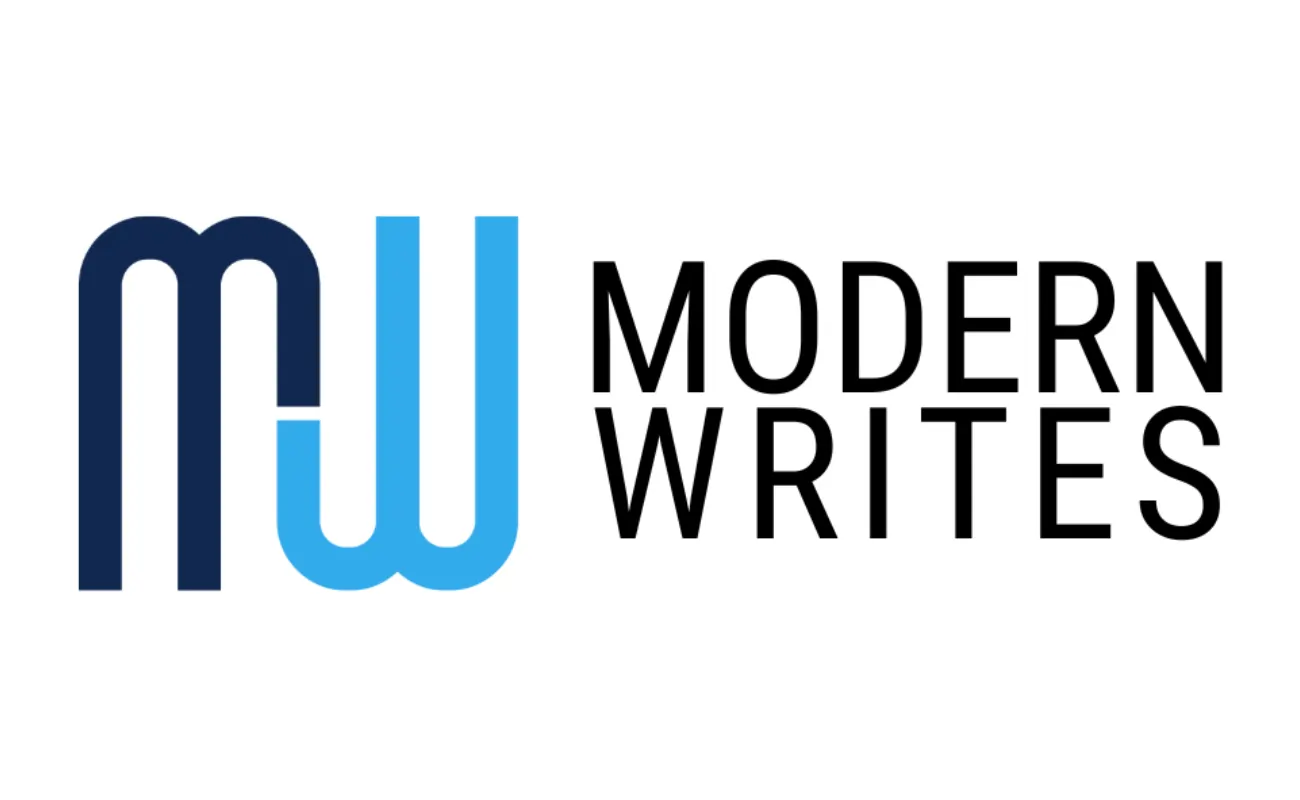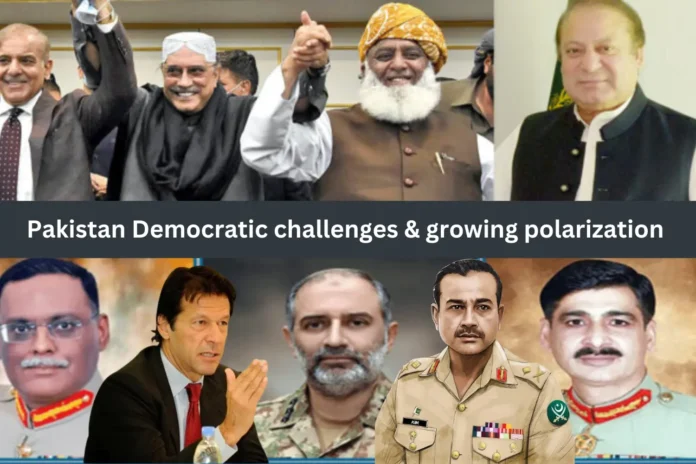Describing Pluralism and Political Polarization Pakistan
Democracies are characterized by plurality and tolerance. Since pluralistic civilizations value the diverse perspectives, convictions, and pursuits of their populace, these ideas are related. But plurality without respect for the rights of other groups and without tolerance can lead to political division.
When ideological or political groups are sharply opposed to one another and unable to compromise or find common ground, political polarization results. In these circumstances, bigotry and disdain for opposing viewpoints can threaten democracy.
The term “polarized politics” refers to the growing gap between political ideologies that breeds distrust and hatred. Zero-sum conflicts are usually associated with political conventions and policies. This is a global trend. Divided politics exist in even the oldest democracies, such as the United States.
Political Polarization in Pakistan
Pakistan is not an exception to divided politics and the challenges of democracy, with its unstable civil-military ties, military interventions, ineffective civilian governments, and linguistic and ethnonational divides.
There is division throughout Pakistani society, from the top to the bottom, and there is no agreement on what constitutes a democratic society. The political divide in Pakistan is top-down rather than bottom-up. Throughout history, politicians have shaped stories and popular perceptions. Power corridors that permeate society and divide the populace are the key to political polarization.
- Political parties vying for control and state elites like the judiciary and bureaucracy are the main causes of political division in Pakistan.
- Pakistan’s discord and fragmentation have made it possible for state institutions—such as the military and the judiciary—to meddle in political affairs.
- There have best been some instances of political harmony and cooperation among political events and governmental establishments during Pakistan’s seventy-five-year history.
It took nine years to write down Pakistan’s first constitution due to the fact national institutions couldn’t agree on the way to run the us of a. Parliament, which is supposed to symbolize the people, frequently offers external strain. Ruling parties stay within certain bounds to avoid upsetting institutions. The lengthy history of martial law has further divided political parties into factions that support and oppose the status quo.
Pakistan’s democracy is insecure despite being established on democratic principles. There have been many democracies in Pakistan. According to Mohammed Wasim’s book Political Conflict in Pakistan, democracy is “establishmentarian democracy.” He talks about democratic variations in brief:
Direct Military Rule in Pakistan
Pakistan’s political records is marked by means of the coexistence of a ramification of political systems. There were four separate durations of military control totalling 17 years: 1958–1962 underneath preferred Ayub Khan, 1969–1971 underneath widespread Yahya Khan, 1977–1985 under standard Zia-ul-Haq, and 1999–2002 under trendy Pervez Musharraf.

-
Military-bureaucratic oligarchy
For the first eleven years of Pakistan’s independence, from 1947 to 1958, the u. S . A . Was managed via an elected respectable governance. However, this period turned into prominent by way of a army-bureaucratic oligarchy, in which those bodies used unequal electricity.
-
Military rule under a civilian president
Army rule turned into instituted in Pakistan in a way much like that of the King’s birthday celebration. Zia-ul-Haq governed from 1985 to 1988, Ayub Khan led from 1962 to 1969, and Musharraf led from 2002 to 2008.
-
Elected governments under civilian presidents
The Trica model was used by democratically elected governments led by civilian presidents. Presidents Benazir Bhutto (1988–1991), Nawaz Sharif (1990–1993), Benazir Bhutto (1993–1996), a caretaker administration (1996–1997), and Sharif (1997–1999) served a total of 11 years.
-
Governments that continually faced military conflict
Between 2008 until 2013, the PPP assumed control of power, but the PMLN maintained control from 2013 to 2018.
Two Years of an elected government and the installed order apparently at the same page
Under the PTI leadership, this transpired between the years of 2018 and 2021. The hasty union was no longer closing, and it ended on a sour observe. Former Pakistani top Minister and PTI chief Imran Khan became ousted from electricity following a vote of no confidence in the Senate. He initially suggested that the United States government was behind his claimed demise.
A few months later, he ceded power to the Pakistani military and gained support from political figures who were vocal in their opposition to the armed forces. Mr. Khan’s democratic policies make him unique among leaders. Khan’s populism has never been clearer.
It would appear that Imran Khan’s corporate characteristics of a populist leader, from difficult and attacking legal structures to polarizing the public into foreigners and insiders to bypassing constitutional processes. Mr. Khan has a matchless delivery and manner in Pakistani politics. Many political analysts and journalists have suggested that the current political crisis in Pakistan is merely the latest iteration of an endless cycle.
Incredible, bizarre things have been reported. This controversy is remarkable in its degree of public transparency, and it has sparked substantial public outrage directed at army businesses. A warrant for Imran Khan’s arrest on corruption accusations become issued by the Islamabad excessive court docket on may 9, 2023.
General Headquarters (GHQ):
Many PTI fans found Khan’s arrest to be totally unacceptable. Attacks on the Army General Headquarters (GHQ) in Rawalpindi and the Corps Commander House (Jinnah House) in Lahore increase an already volatile situation. Both the attackers and the PTI’s political control were shaken by what happened. Many of the PTI’s top officials have been arrested; others have been released on bail only to be re-arrested, and others have just deceased the party.
Military justice is currently being managed by those responsible for the attacks on GHQ and the Corps Commander’s House. A week ago, hundreds of PTI allies were stopped. These behaviors are not proper, but it is also important to identify what is causing them. While in power, the PTI falsely accused its opposition of several crimes. There was a seriously high rate of criminal principles and arrests.
When it served its goals, the PTI did not interfere or protest the punishment of its political opposition. The political opposition was threatened with terrible consequences if they did not support the plan, but they did support it. As expected, political opposition is feeling the wrath of those actions taken against them. The present government is following in the footsteps of the last one.
General Qamar Javed Bajwa :

The Pakistani army, which was previously kept under wraps, is now discussed. As he addressed pension, former Chief of Army Staff General Qamar Javed Bajwa openly accepted full responsibility for the political confusion. The army would stay out of politics and concentrate on its core duties, he informed the public. For openers, this announcement was a breath of fresh air. Relief was passing.
Finding a Way Forward to Bring the Country Back on the Path of Development
Suggestions are few and far between due to Pakistan’s problems and troubles. Due to the fact the problems are complicated, so too are the answers. Despite the fact that specialists have offered some of solutions at some stage in the years, there doesn’t seem to be much political will to address those troubles. This apathy arises because temporary and personal goals always take priority over long-term and national targets.
Pakistan must, nevertheless, act to restore organizational limits and enact a republic. Above all, Pakistan’s army needs to be goal-oriented and avoid getting involved in politics. A move like this could alter Pakistan’s elected course. Aristocracy and confident legal action should be avoided by the Pakistani court since they can risk political rule. It ought to be directed by a reasonable structure that upholds the division of powers. Legislative meetings should be used to enact political reforms in order to increase the republic and lessen outside influence.
In a republic, political parties are important. A code of conduct and common norms ought to promote, political unity. Free and fair elections, civil freedoms, endless media, balance, and a smooth transfer of power are all basic parts of party agreement. Politicians of all stripes must recognize the popular process and results. Aim to win over the public by staying away from populist rhetoric that threatens democracy. As a result, everyone involved needs to acknowledge how serious the problems are and cooperate to find solutions.





